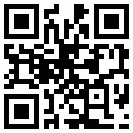According to
Amac News: He said at the 55th annual meeting of the World Economic Forum in Davos: "This transition from the industrial age to the intelligent age is happening rapidly and it brings unprecedented risks to humanity."
However, he added that this transition also offers significant opportunities to overcome current challenges and create a new renaissance – a renaissance defined by advances in knowledge, health, culture and social well-being.
Schwab called on the global community to rise to the occasion with "constructive optimism" and urged stakeholders across all sectors – government, business, civil society and academia – to come together to create solutions to common challenges.
"By embracing constructive optimism and believing in our collective capacity and commitment to improve the state of the world, we can shape the Smart Age as one in which every human can realize their full potential," he said.
The President and CEO of the World Economic Forum emphasized that the world is at a critical turning point and 2025 will be a year with huge consequences.
On the other hand, European Commission President Ursula von der Leyen explained Europe's plan to adapt to the new era of "tough geo-strategic competition" at this meeting.
"To sustain growth in the next quarter, Europe needs to shift gears," he said. We should not take anything for granted. We must look for new opportunities wherever they are found. This is the right time to engage beyond blocks and taboos. And Europe is ready to change."
Meanwhile, German Chancellor Olaf Schultz also called for new commitments to security and prosperity in the face of global challenges, stressing that partnerships serve as "engines for successful economic development."
Ding Shixiang, Vice Premier of the People's Republic of China, warned of the increasing fragmentation of the global economic system. He supported a globalization process that would benefit all nations and emphasized China's commitment to a multilateral order based on the United Nations.

 QR code
QR code